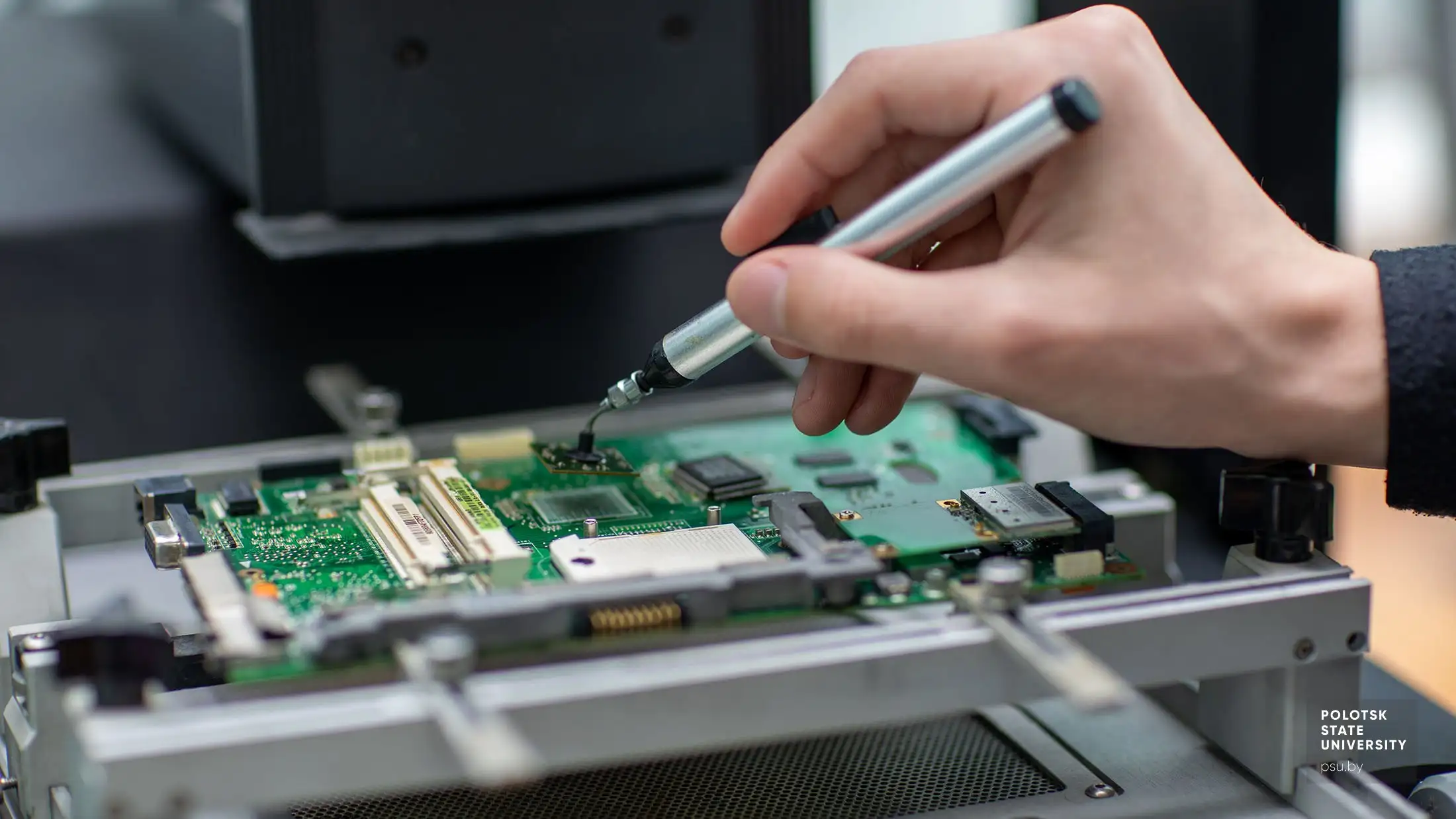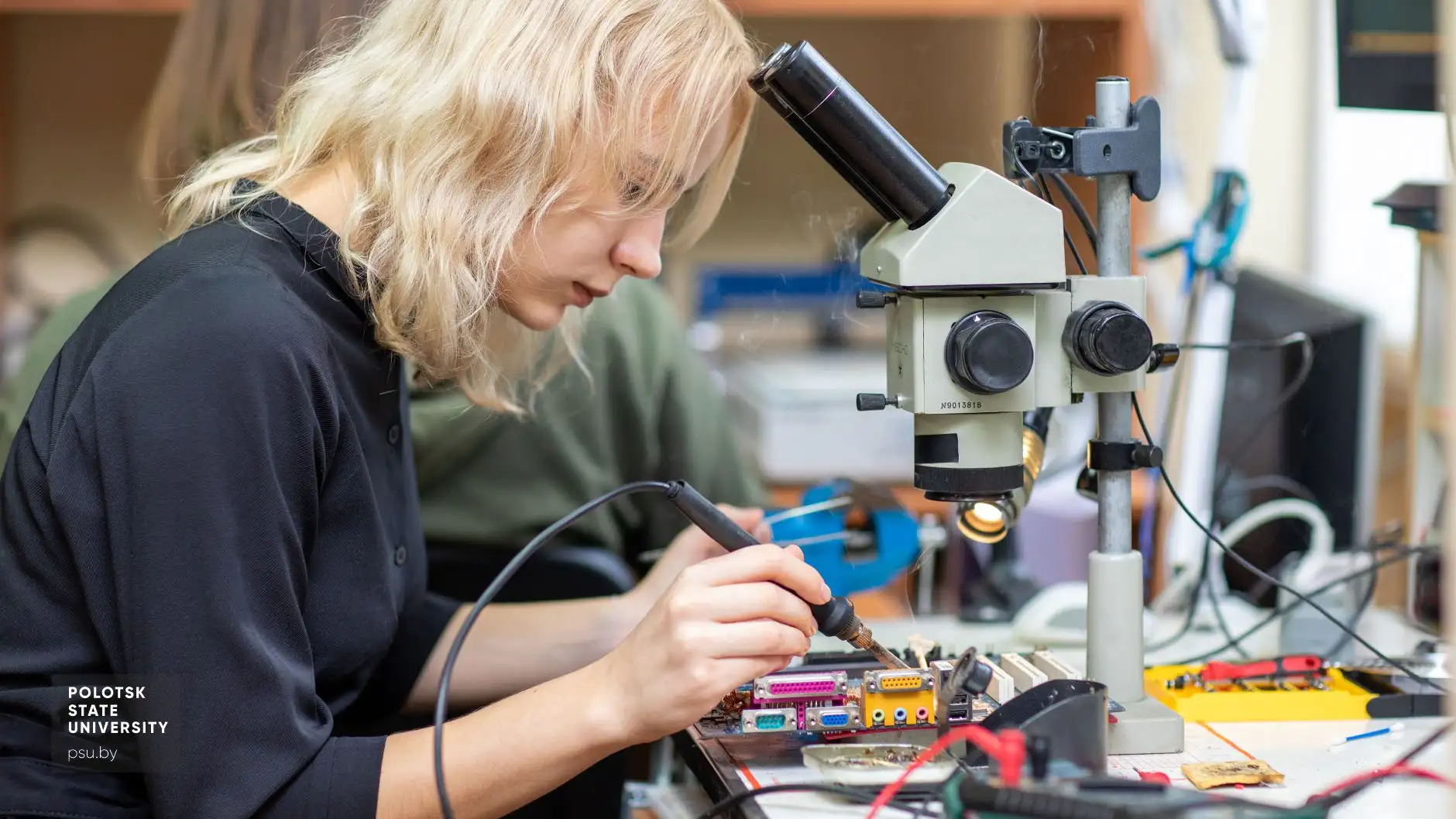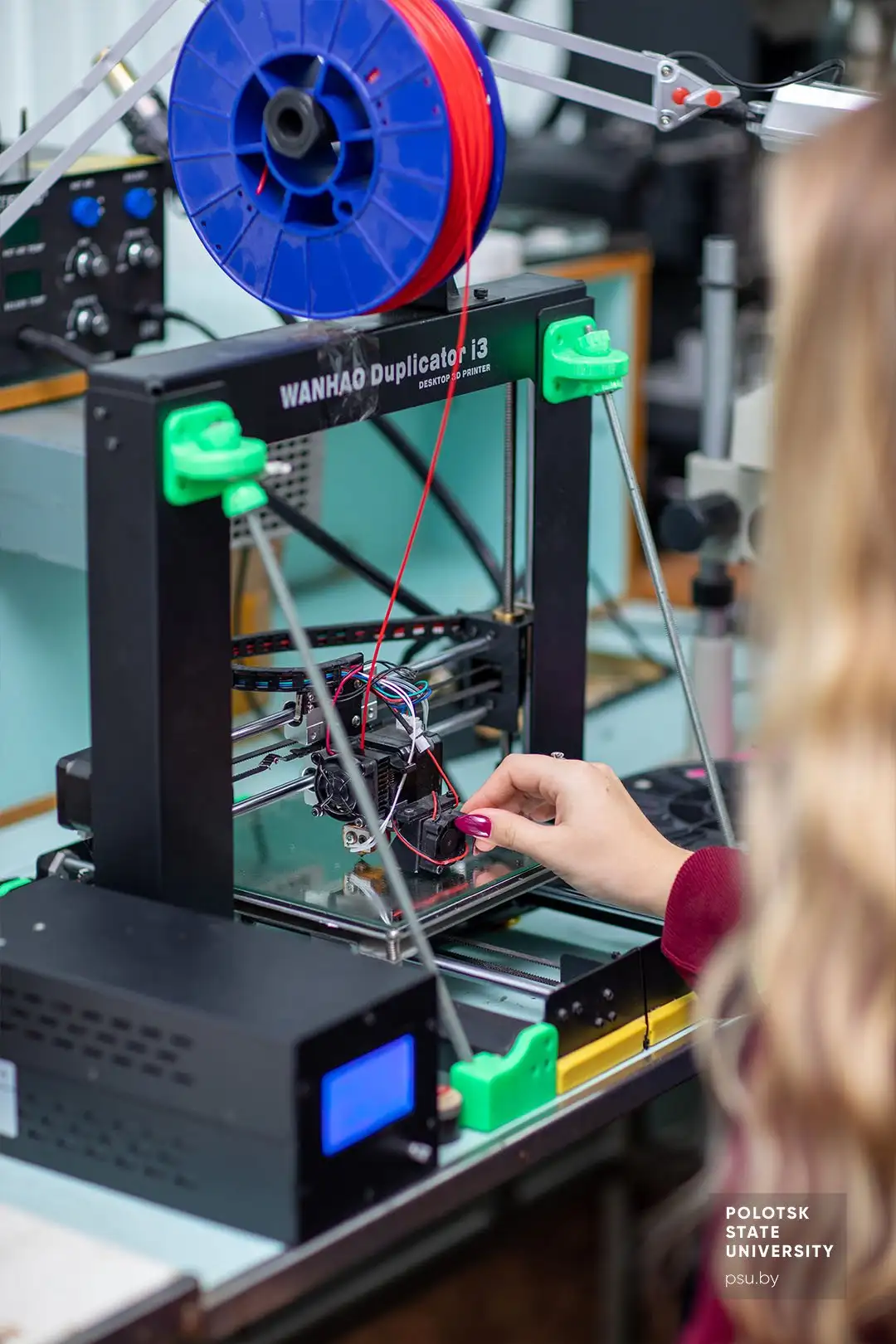Design and Manufacture of Software-Controlled Electronic Devices

Qualification given: engineer, electronics engineer, programmer
Study period: full-time – 4 years
Study period: full-time – 4 years
Design and Manufacture of Software-Controlled Electronic Devices is a multidisciplinary specialty. It allows to acquire three qualifications at once: engineering, electronics engineering, and programming.
Microcontrollers are the basis of modern electronic means. Those are chips responsible for control and versatility of a device. Students of the specialty learn to project, develop and produce any of such means: smartphones, computers, automation systems, industrial controllers, etc. They also learn to program microcontrollers. One more important skill our graduates get is the ability to repair electronic devises.
You will learn

- to project, design, produce modern and improve traditional electronic devices and programmable control systems
- to repair electronic devices and systems
- to design in-car electronics and perform its diagnostics
- to operate and maintain electronic devices and systems
You can work at ?
- development labs and enterprises, dealing with design and development of modern electronic equipment with microcontrollers
- radio- and tool engineering departments
- hi-tech park departments
- departments of automation of process control systems at industrial enterprises
- electrical repair shops
- industrial enterprises equipped with automated assembly lines and industrial robots
- manufacturing equipment and electronic means software testing departments

Majors
- Basics of algorithmization and programming
- Information security (including the basics of intellectual property management
- Electronic components
- Radio electronic parts technology
- Software for electronic devices
- Software-controlled electronic devices technology
- Circuit design of electronic devices
- Design of software-controlled electronic devices
- Software-controlled microcontroller devices
- Typical components and sensors of control and diagnostic tools
- Programming and technical operation of automation equipment and means of measurement and monitoring
- Circuit theory
- Technical mechanics, metrology and measurements
- Low-level programming
- The basics of discrete mathematics
- Non-destructive testing of components of automation and instrumentation systems
- Materials of electronic engineering
- Design and technology of integrated modules
- Theoretical basics of technical operation and repair of radio electronic devices
- Electronic devices
- Diagnostics and repair of instrumentation equipment
- Engineering support for the reliability of software-controlled electronic devices
- Testing and quality control of electronic devices
- Automatic control of technical systems